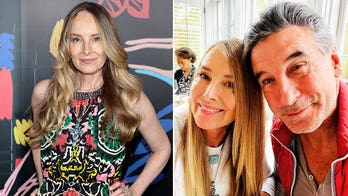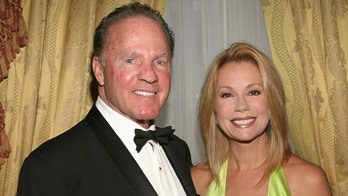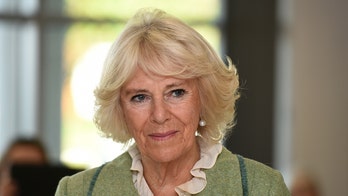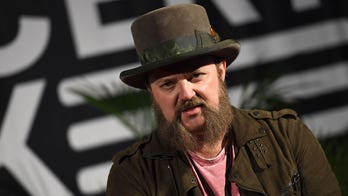The mainstream media freaked out over a fake story about President Trump overfeeding fish in Japan and criticized him for not taking questions during a press conference in China, but several of Trump’s achievements from his Asia trip were underreported. In other words, the anti-Trump media are, as usual, picking and choosing what to focus on based on their usual narrative.
“We've seen everything from the feeding frenzy around the false koi story where video was actually edited to make the president look like an unpolished rube to sanctimonious criticism around the president not taking questions while with the Chinese president when his predecessor also didn't take questions as well during his first trip there,” The Hill media columnist Joe Concha told Fox News.
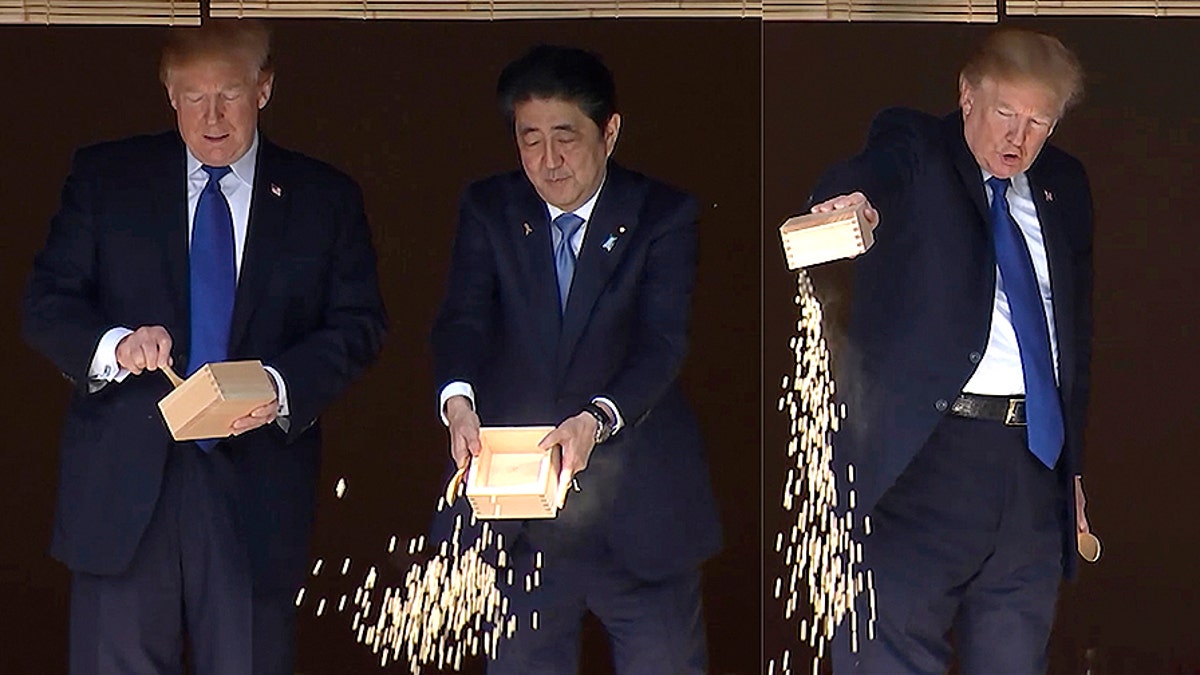
In this combination of images made from video, U.S. President Donald Trump and Japan's Prime Minister Shinzo Abe feed carp at a koi pond before their working lunch at Akasaka Palace in Tokyo, Japan Monday, Nov. 6, 2017. (AP Photo) (AP)
Trump delivered a powerful speech Friday before a summit of Asian leaders in Vietnam, but CNN decided not to bother airing the late-night speech. The increasingly liberal CNN didn’t even mention the speech on air until a brief update in the 3 a.m. ET hour, while Fox News and MSNBC had reporters on the ground and covered the speech live.
In the speech that CNN viewers never saw, Trump reiterated his “America First” message, saying he will not “let the United States be taken advantage of anymore.” A slew of high-profile Twitter users, who apparently don’t watch CNN, simply saw the president’s speech as an opportunity to mock Trump for not fighting in the Vietnam War.
In addition, numerous U.S. companies announced $250 billion worth of deals in China, coinciding with Trump’s visit with Chinese President Xi Jinping. To wit: Boeing reached a $37 billion agreement to sell 300 planes to China; General Electric picked up three deals in China valued at a combined $3.5 billion; and Qualcomm reached three nonbinding deals to sell $12 billion in semiconductors to Xiaomi, Oppo and Vivo over the next three years. None of the job-creating deals received the attention they deserved from mainstream media.
The average American is probably more familiar with a report that Trump was offered women being sent to his room in Russia during the 2013 Miss Universe Pageant. ABC and CBS each spent significant time covering the nonstory -- but predictably muted the fact that Trump didn’t take the offer seriously.
“Lost in all of this is the $250 billion dollar trade deal can actually impact our economy that gets relatively buried because it lacks sizzle and character assessments."
“Lost in all of this is the $250 billion dollar trade deal can actually impact our economy that gets relatively buried because it lacks sizzle and character assessments,” Concha said.
The Associated Press even tried to undermine the impact of the announced deals, saying they are “more about the art of diplomacy than the art of the deal” – a dig at the title of one of Trump’s books -- while painting the $250 billion agreements as “ceremonial” and “mostly about symbolism.”
Media Research Center Vice President Dan Gainor echoed Concha and said the mainstream media is “spinning a successful foreign policy trip into a disaster because that's how they want it perceived.”
“They are manufacturing controversy,” Gainor told Fox News. “First we had the bogus koi fish story where Trump dumped the fish food into the pond doing exactly as Prime Minister Abe had done. Yet media tried to hype it as awful. Now we have journalists complaining Trump didn't take questions in China when Obama didn't either.”

